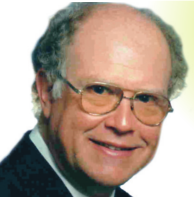Limiting the damage, rather than spreading it
I spent 13 years at Digital Equipment. It was a great company, and one of my favorite perks was our private airline. We had planes that flew us to some of our remote plants and a helicopter service as well.
I could land at Logan Airport at 5 p.m. on a Friday afternoon, walk over to Terminal B and get on a DEC chopper and be home for dinner at 5:30. It was so delightful flying north at 100+ miles per hour looking down at Route 93, which was little better than a parking lot, and thanking DEC for sparing me the two-plus hours it would otherwise have taken me to get home in Windham.
Unfortunately, if you didn’t work for Digital, you couldn’t take advantage of this tremendous service. So, a bunch of us got together and started a similar service called HubExpress.
We put a business plan together and got a wonderful group of investors interested. We had six or seven heliports strategically located for business travelers (e.g., Andover, Boxborough, Waltham, Cambridge, etc.). The one in Cambridge was at Arthur D. Little. Even though they were already in Cambridge, getting to Logan was still a major hassle.
We bought one helicopter and leased three others. We hired pilots and got ready to go.
We launched in 1986 flying about 6,800 passengers that year. Business grew steadily to over 12,000 in 1989. The cost was only $44 to $55 depending on where you were flying from, not much more than the cost of an airport limo but took so much less time.
In 1990, we had a recession. Saddam Hussein had invaded Kuwait. The U.S. and its allies retaliated to liberate Kuwait in the first Gulf War. Sadam specifically threatened terrorism on commercial aviation, and companies instituted travel bans to protect their employees. Business fell off precipitously, not just for us but for business travel in general.
That wasn’t in the business plan. The year before, we were almost at break even. We depended on our investors to keep investing to keep us going. When this happened, instead of looking at profitable operations in the near future, we were looking at a deep money pit, and nobody knew for how long.
We had our board meetings at beautiful law offices overlooking Totem Pond in Waltham. I remember our last board meeting like it was yesterday. As we went over the numbers, someone said, “We have just enough money left to meet our payroll and pay our suppliers. If we shut it down now, nobody gets burned but us investors.”
There was a long pause after that. I had already lost a lot of money on Black Monday in 1987. I didn’t want to lose more, but I knew this was the right thing to do. Our money was gone — burning other people’s money wouldn’t bring it back. Increasing the number of losers made no sense at all.
We voted to shut it down. As I walked out with several other investors, one of them commented, “Those sandwiches we had at these meetings were very good, but I don’t think they were worth what we ended up paying for them.”
Many of our investors were prominent, well-known people in the Boston area. They shall remain nameless just in case they wouldn’t want everyone to know about what turned out to be a bad investment for all of us.
The good news is that they were honest and had integrity. We didn’t burn anybody; we investors were the only ones who lost money on the deal.
How often do we hear of companies running up monstrous debts, sometimes in the billions of dollars, and then filing for bankruptcy protection? It’s like they want us to believe they just discovered they had a problem. Unless we’re stupid, we know the problem was apparent long before and would have been so much easier to address before it grew to such a level.
Right now, two communities in Massachusetts are struggling with the closures of their hospitals because of the Steward Healthcare debacle. There’s been a lot of publicity. A number of causes and potential causes have been identified, some might be criminal. I don’t have enough information to assign blame, but I can’t help but wonder how much differently this story could have unfolded had the management, or even a whistleblower, sounded the alarm much earlier.
Had their board and management been more like that of HubExpress, the problems might have been solvable had the cost not been so staggering.
Ronald J. Bourque, a consultant and speaker from Salem, has had engagements throughout the United States, Europe and Asia. He can be reached at 603-898-1871 or RonBourque3@gmail.com.